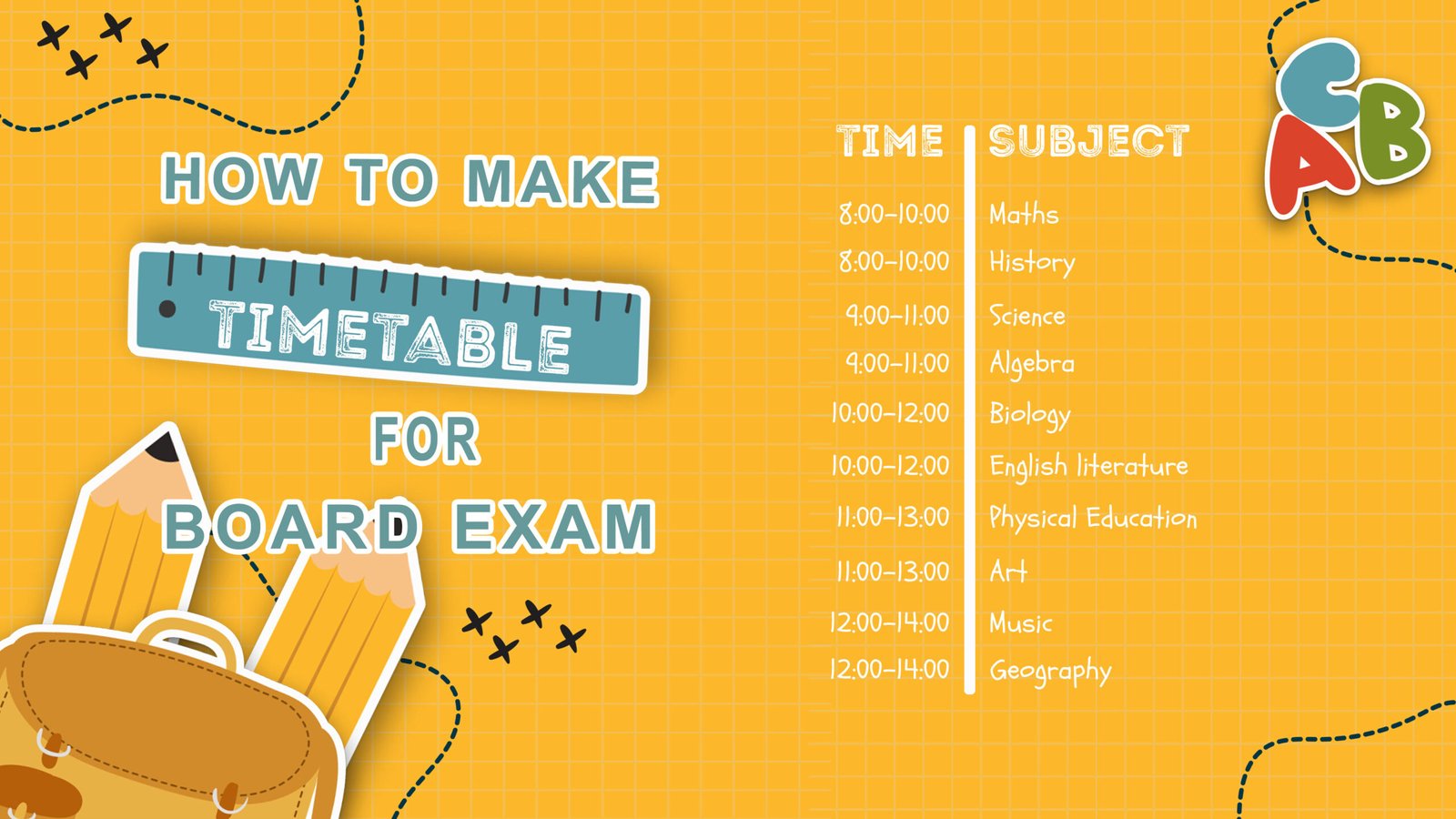Creating a timetable for board exam preparation is an effective way to organize your study schedule and ensure that you cover all the necessary topics. Here’s a step-by-step guide on how to make a time table for your board exams:
1. Gather Information:
Collect all the relevant information about your board exam, such as the exam dates, subjects, and syllabus. Make sure you have a clear understanding of the exam structure and the weightage given to each subject.
2. Assess Your Strengths and Weaknesses:
Take some time to assess your strengths and weaknesses in each subject. Identify the topics you feel confident about and the areas where you need more practice or understanding.
3. Break Down the Syllabus:
Divide the syllabus for each subject into smaller topics or chapters. This will help you to have a clear idea of what needs to be covered and make it easier to allocate time for each topic.
4. Determine Study Hours:
Decide on the number of study hours you can dedicate each day. Be realistic and consider other commitments or activities you have during the day.
5. Prioritize Subjects and Topics:
Based on your assessment of strengths and weaknesses, prioritize the subjects and topics that require more attention. Allocate more study time to challenging subjects or areas that you find difficult.
6. Create a Weekly Study Plan:
Design a weekly study plan that incorporates all the subjects and topics you need to cover. Break down the topics into manageable study sessions and assign specific days or time slots to each subject. Make sure to include breaks and time for revision.
7. Set Goals:
Set specific goals for each study session or day. For example, you can aim to complete a certain number of topics or chapters, revise a specific subject, or solve a set number of practice questions.
8. Follow the Timetable:
Stick to your timetable as closely as possible. Avoid procrastination and distractions during your study hours. It can be helpful to have a study buddy or join a study group to stay motivated and accountable.
9. Review and Adjust:
Regularly review your progress and assess whether your timetable is working effectively for you. Make adjustments if necessary, such as allocating more time to challenging topics or redistributing study hours based on your performance.
10. Include Breaks and Rest:
Remember to include breaks in your timetable to relax and recharge. Taking regular breaks improves focus and prevents burnout.
11. Revise and Practice:
Allocate dedicated time for revision and practice. Review previously covered topics, solve sample papers, and attempt mock exams to gauge your preparation level.
12. Be Flexible:
While it’s important to stick to your timetable, be flexible and adaptable. Unexpected events or changes in circumstances may require adjustments to your schedule. Don’t get discouraged if you deviate from the plan occasionally. Adapt and get back on track.
Remember, creating a timetable is just the first step. It’s equally important to follow it consistently, stay disciplined, and maintain a positive mindset throughout your exam preparation. Good luck!

